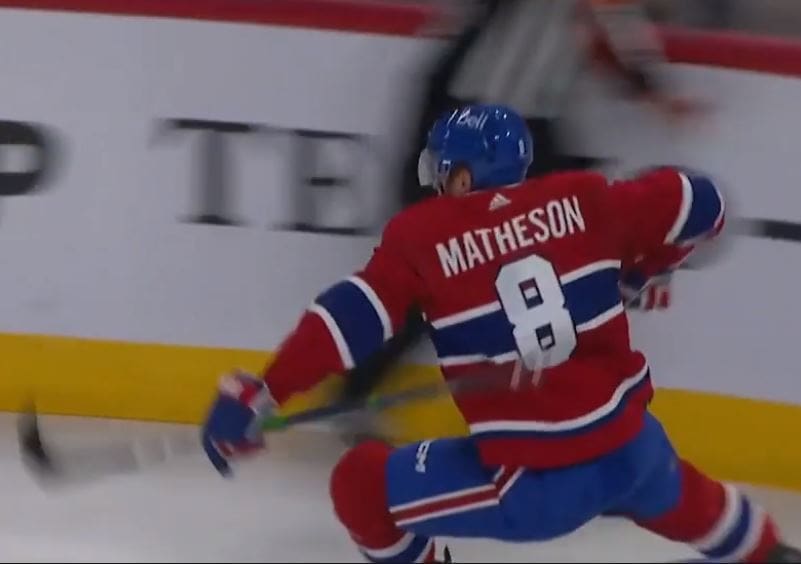Montreal Canadiens
Canadiens St-Louis Talks Importance Of Puck-Moving Defencemen

Montreal Canadiens head coach Martin St-Louis discussed the value of having mobile defencemen in the lineup before the matchup against the reigning Stanley Cup champions.
The Colorado Avalanche famously rely on offensive support from their defencemen, most notably from 2021-22 Norris Trophy winner Cale Makar.
And while Canadiens fans continue to hope impressive NCAA rookie Lane Hutson can eventually provide the same type of support as Makar, there’s one player on the roster who does fill that role to a certain extent; Mike Matheson.
Much like his predecessor, Jeff Petry, Matheson epitomizes the modern offensive defenceman.
He’s fantastic in transition and generally increases the production of all forwards who are lucky enough to be on the ice with him.
Mike Matheson’s goal tonight, what a player pic.twitter.com/4YteIfbYMn
— Habs Fan TV (@habsfantv_) March 6, 2023
“It’s the norm on every team these days,” explained St-Louis. “The modern style of play involves offensive rushes with more than just three players. Oftentimes, it involves four or five players. Defencemen are a crucial part of scoring these days. They used to usually play from blueline to blueline. But now they support offence a lot more often. It’s been a significant evolution in the position.”
Of course, players like Makar and Adam Fox are far from the first defencemen to put their hockey sense to good use.
Canadiens legend Doug Harvey revolutionized the role, earning six Norris trophies between 1955 and 1961, a run that was only interrupted when his teammate Tom Johnson took home the award in 1959.
Harvey famously eschewed his Hockey Hall of Fame induction due to the pushback from NHL owners when he attempted to establish a union. The hard-working, hard-living defenceman opted to go fishing, instead.
In a sense, that’s what modern defencemen do in the NHL.
They go fishing for scoring chances, which leads to excitement, but every time they leave one area of the lake for another, there’s a risk they may miss out on a little action.
“I’m also asking our defencemen who are more offensively inclined to defend. And I ask our defensive defencemen to join the attack, as well. They all have their strengths, but they have to play in a manner that helps us win, regardless if we’re attacking or defending.”
That’s what players like Justin Barron, Jordan Harris, and Kaiden Guhle must avoid when driving the play: forgoing their defensive responsibilities.
It’s a fine balance, and even seasoned veterans such as Matheson can leave their defensive partners in the lurch, as we saw earlier this week when Guhle was forced to cover for the Quebec native.
The play was a healthy reminder that mobile defencemen will get caught out of position once in a while. The key is providing more good than bad when driving up the ice, which is definitely the case for Matheson.
As we’ve seen from players like Makar, puck-moving defencemen aren’t just important, they’re a crucial aspect of winning hockey games in the NHL, full stop.
The Canadiens don’t have anyone of his ilk on the roster, but there has been a significant uptick in offence driven from the blueline in recent weeks, thanks to great decision-making from players like Guhle and Barron.
It’s exactly what the Canadiens hope to see from mobile defencemen, and a rather encouraging sign given they’re in the first stages of a complete teardown and rebuild.
As for facing teams like the Avalanche during the Canadiens’ incredibly difficult final stretch of the season, St-Louis sees a certain value, especially if his team can continue to provide honest efforts against powerhouse clubs, as they’ve done against teams like the Carolina Hurricanes and New Jersey Devils.
“I’m happy we have this schedule. It’s a good test and I think we’re doing a good job.”
Their lack of points suggests the job could be done a little better, but given the dearth of talent in the lineup, an honest effort is just about as good as it gets these days for the Canadiens.









